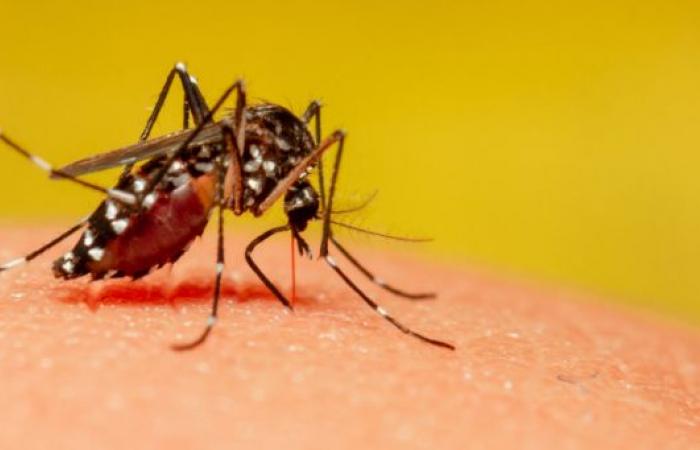
Search for Fiocruz shows expansion of dengue in South It is center–Westmainly due to higher temperatures and the loss of green areas.
The information is published by ClimaInfo, 18-03-2024.
The increasing incidence of dengue in areas where the disease was previously uncommon is directly related to the constant heat waves caused by climate change and the increasing human occupation of recently deforested areas. This is the conclusion of a new study by researchers from the Oswaldo Cruz Foundation (Fiocruz) and published last week in the journal Scientific Reports.
The study used data mining techniques to identify climatic and demographic indicators that could explain the growth in the number of dengue cases in the regions South It is center–West from Brazil. According to the analysis, the occurrence of temperature anomalies for a prolonged period, especially heat waves, associated with urbanization and population growth in areas previously occupied by vegetation, would be the main factors that resulted in an increase in the incidence of the disease among 2014 and 2020.
“Inside the Paraná, Goiás, District Federal It is Bush Thick southern, the rise in temperatures is becoming almost permanent. We had five days of heat anomaly, now there are 20, 30 days of heat above average throughout the summer. This triggers the transmission process of dengueboth because of the mosquito [Aedes aegypti] as well as the circulation of people”, explained Christovam Barcellos, researcher at Fiocruz and one of the study authors.
In addition to the above-average heat, the advance of deforestation, mainly in thickhas been favoring the proliferation of dengue fever in center–West Brazilian. “In these regions that are suffering from high temperatures, we have also seen very accelerated deforestation. And within the Cerrado, there are cities that already have heat islands, suburban areas or outskirts with poor sanitation conditions, making it more difficult to combat mosquitoes,” he stated. Barcelona. Folha and O Globo provided more information about the study.
The new analysis reinforces recent research that points to the connection between the intensification of extreme heat and the explosion of dengue fever. The summer of 2023/2024, which ends this week, is an example of this relationship: successive high temperature records in much of Brazil are being accompanied by historic highs in the incidence of dengue fever.
According to the Ministry of Health, until last Friday (3/15) Brazil had registered 1,684,781 cases of dengue since the beginning of 2024. This number exceeds the total number of cases registered throughout the entire last year. The year 2024 is already the 2nd worst in the historical series, behind only 2015, when the country recorded more than 1.688 million cases of dengue. However, with more than nine months to go until the end of the year, it is almost certain that 2024 will be confirmed as the worst in the historical series of the disease in the country.
Agência Brasil, CNN Brasil, Correio Braziliense, Folha and g1 reported on the explosion of dengue cases in Brazil in 2024.
read more
Report Portuguese, informational or technical errors found on this page to the editors:
Growth of dengue is related to deforestation and climate crisis, says study by Fiocruz – Instituto Humanitas Unisinos – IHU
Tags: Growth dengue related deforestation climate crisis study Fiocruz Instituto Humanitas Unisinos
--




